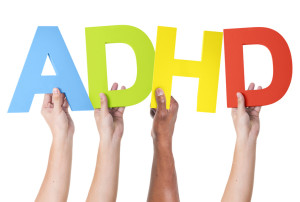
Individuals with Attention Deficit Hyperactivity Disorder (ADHD) typically have symptoms such as impulsivity, difficulty concentrating, and overactive temperaments. Practically, this means a person with ADHD may procrastinate, appear disorganized, have trouble staying on topic or on task, and be easily distracted.
In addition to these symptoms, according to recent research published in the Journal of Child Psychology and Psychiatry, it is common for individuals with Attention Deficit Hyperactivity Disorder to experience additional physical and mental health risks. [1] These risks include behavioral, psychiatric, and somatic health issues.
Because of these additional problems, the study also found that healthcare costs were significantly higher in adults who had childhood ADHD. The expenses were driven by outpatient visits, inpatient stays, and medical care for drug abuse and injuries.
It is estimated that more than 25% of adolescents with substance abuse problems fit the criteria for ADHD [2]. Attention Deficit Hyperactivity Disorder is five to 10 times more common among adult alcoholics than it is in people without the condition. [3]
It is theorized that impulsivity and poor judgment commonly associated with ADHD contribute to the increased risk for substance abuse. [4] Others suggest that individuals with ADHD may try to use substances to self-medicate.
Substances can sometimes be used by those with ADHD to help cope with heightened emotions, feelings of boredom, and reactivity. Others might use substances to try and increase their mental focus.
If you are a parent of a child, adolescent or college student with ADHD, and you believe they may be experimenting with drugs and alcohol, here are some warning signs to consider:
- A loss of interest in activities previously enjoyed
- Moodiness and irritability
- Increased isolation and avoidance
- Changes in sleep patterns
- Significant changes in weight or appearance
- Frequently asking for money or stealing
- Problems with the law
- Missing school or work
- Changes in friend groups
The good news is that there are many treatment options for families and children with ADHD. For parents who suspect their children may be struggling with the combination of Attention Deficit Hyperactivity Disorder and substance abuse, it is recommended that they seek out professional help who can address both issues, or find a specialist willing to work alongside a team who can provide care for the co-occurring problems.
Treatment Options for ADHD
Parent Behavior Therapy is an approach in which therapists coach parents to better respond to impulsive and challenging behavior in children. The more parents feel equipped to parent in challenging situations, the better the outcomes for all involved. According to the Center for Disease Control (CDC), this approach can improve a child's behavior, self-control, and self-esteem through "skills and strategies to help their child with ADHD succeed at school, at home, and in relationships." [6]
Cognitive Behavior Therapy helps children work on their thoughts and behaviors to develop skills and techniques to manage their ADHD symptoms and increase confidence. Because CBT requires more cognitive development in order to be helpful, this approach will be more effective in adolescents than in children.
 Attention Deficit Hyperactivity Disorder Coaching is another option. With a coach, families and coaches work together to set goals, create systems, and use strategies to better manage ADHD. The ADHD Coaches Organization is a collection of "specialists who have specific training and expertise in coaching people and/or groups affected by ADHD and provides a directory of potential coaches you can search." [5]
Attention Deficit Hyperactivity Disorder Coaching is another option. With a coach, families and coaches work together to set goals, create systems, and use strategies to better manage ADHD. The ADHD Coaches Organization is a collection of "specialists who have specific training and expertise in coaching people and/or groups affected by ADHD and provides a directory of potential coaches you can search." [5]
Schools can also provide additional support for children with ADHD. Each state has a parent technical assistance center to help parents learn how to receive an Individualized Education Program (IEP) or Section 504 plan. Ideally, these supports help students with time management, planning, and organizational skills to help students improve learning and reduce distractions.
Medication is commonly used in the treatment of Attention Deficit Hyperactivity Disorder. According to the American Academy of Pediatrics, stimulant medications are a "safe and effective way to relieve ADHD symptoms" and that "about 80% of children with ADHD who are treated with stimulants improve a great deal once the right medication and dose are determined."
New treatment possibilities continue to emerge for Attention Deficit Hyperactivity Disorder and may help decrease the vulnerability to substance abuse problems. One such emerging treatment is neurofeedback. Neurofeedback uses technology to read brain waves and give the brain direct feedback so it can regulate itself.
Dr. Christine Schneider of the Integrative Mind Institute in St. Louis explains how it works, “The feedback mechanism within neurofeedback trains the brain into more adaptive waves that increase focus and decrease hyperactivity, thereby allowing the brain to function optimally without the need for ongoing stimulant medications that carry with them negative side effects.” It is a non-invasive, pain-free, and drug-free treatment.
This treatment can be particularly appealing to children and adolescents as it involves the use of video games or movies. It is also appealing to parents because it is a short-term therapy without the risks of medication.
The more we learn about the brain and the more attention given to children and teens diagnosed with ADHD, the more we will see improved outcomes for individuals to transition to healthy, independent adults.
REFERENCES
1. Das, D. K. (2020, March 26). Childhood ADHD Linked to Psychiatric and Somatic Disorders, Large Financial Costs. Retrieved April 4, 2020, from https://www.psychiatryadvisor.com/home/topics/adhd/childhood-adhd-linked-to-psychiatric-and-somatic-disorders-large-financial-costs/
2. Leary, A., & Legg, T. J. (2019, January 28). Exploring the Powerful Link Between ADHD and Addiction. Retrieved April 4, 2020, from https://www.healthline.com/health/mental-health/adhd-and-addiction#1
3. Bhandari, S. (2018, May 20). ADHD and Substance Abuse: Alcohol and Drugs Connected to ADHD. Retrieved April 4, 2020, from https://www.webmd.com/add-adhd/adhd-and-substance-abuse-is-there-a-link#1
4. Healthychildren.org | American Academy of Pediatrics. (n.d.). ADHD and Substance Abuse: The Link Parents Need to Know. Retrieved April 4, 2020, from https://www.healthychildren.org/English/health-issues/conditions/adhd/Pages/ADHD-and-Substance-Abuse-The-Link-Parents-Need-to-Know.aspx
5. Rickabaugh, D. (n.d.). Find A Coach. Retrieved April 4, 2020, from https://www.adhdcoaches.org/find-your-coach
6. Parent Training in Behavior Management for ADHD. (2019, September 30). Retrieved April 4, 2020, from https://www.cdc.gov/ncbddd/adhd/behavior-therapy.html
About the Author:
 Travis Stewart, LPC has been mentoring others since 1992 and became a Licensed Professional Counselor in 2005. His counseling approach is relational and creative, helping people understand their story while also building hope for the future. Travis has experience with a wide variety of issues which might lead people to seek out professional counseling help. This includes a special interest in helping those with compulsive and addictive behaviors such as internet and screen addiction, eating disorders, anxiety, and perfectionism. Travis' website is wtravisstewart.com
Travis Stewart, LPC has been mentoring others since 1992 and became a Licensed Professional Counselor in 2005. His counseling approach is relational and creative, helping people understand their story while also building hope for the future. Travis has experience with a wide variety of issues which might lead people to seek out professional counseling help. This includes a special interest in helping those with compulsive and addictive behaviors such as internet and screen addiction, eating disorders, anxiety, and perfectionism. Travis' website is wtravisstewart.com
The opinions and views of our guest contributors are shared to provide a broad perspective of addictions. These are not necessarily the views of Addiction Hope, but an effort to offer a discussion of various issues by different concerned individuals.
We at Addiction Hope understand that addictions result from multiple physical, emotional, environmental and genetic factors. If you or a loved one are suffering from an addiction, please know that there is hope for you, and seek immediate professional help.
Reviewed and Approved by Jacquelyn Ekern, MS, LPC on April 13, 2020
Published April 13, 2020, on AddictionHope.com
